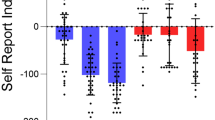Abstract
Reliable and accessible voting systems are essential for democratic societies as they are a vital link between the democratic representation and its citizens. The current voting systems need further accessibility features to aid people with disabilities to vote more independently. This paper describes “Neuro-Voting” a novel P300-based Brain-Computer Interface (BCI) voting application that allows the users to vote for their preferred candidate using their brain activity and without requiring any physical movement. Neuro-Voting uses the P300 wave activity elicited in the users to predict their vote. This paper discusses the design and implementation of the created system including the descriptions of the classification method that was implemented. The application is evaluated through a user study with five participants and the results show that it is highly accurate in predicting the votes of the participants. The application also received positive qualitative feedback from the participants after interacting with the system. The findings from this study demonstrates that it is possible for people to vote with their brains.
Access this chapter
Tax calculation will be finalised at checkout
Purchases are for personal use only
Similar content being viewed by others
References
Bederson, B.B., Lee, B., Sherman, R.M., Herrnson, P.S., Niemi, R.G.: Electronic voting system usability issues. In: Proceedings of the SIGCHI Conference on Human Factors in Computing Systems, pp. 145–152 (2003)
Botrel, L., Holz, E.M., Kübler, A.: Brain painting V2: evaluation of P300-based brain-computer interface for creative expression by an end-user following the user-centered design. Brain-Comput. Interfaces 2(2–3), 135–149 (2015)
Farwell, L.A., Donchin, E.: Talking off the top of your head: toward a mental prosthesis utilizing event-related brain potentials. Electroencephalogr. Clin. Neurophysiol. 70(6), 510–523 (1988)
Hoffmann, U., Garcia, G., Vesin, J.M., Diserens, K., Ebrahimi, T.: A boosting approach to P300 detection with application to brain-computer interfaces. In: Conference Proceedings. 2nd International IEEE EMBS Conference on Neural Engineering, pp. 97–100. IEEE (2005)
Kaplan, A.Y., Shishkin, S.L., Ganin, I.P., Basyul, I.A., Zhigalov, A.Y.: Adapting the P300-based brain-computer interface for gaming: a review. IEEE Trans. Comput. Intell. AI Games 5(2), 141–149 (2013)
Krusienski, D.J., et al.: A comparison of classification techniques for the P300 speller. J. Neural Eng. 3(4), 299 (2006)
Manyakov, N.V., Chumerin, N., Combaz, A., Van Hulle, M.M.: Comparison of classification methods for P300 brain-computer interface on disabled subjects. Comput. Intell. Neurosci. 2011, 1–12 (2011)
McClinton, W., Caprio, D., Laesker, D., Pinto, B., Garcia, S., Andujar, M.: P300-based 3D brain painting in virtual reality. In: Extended Abstracts of the 2019 CHI Conference on Human Factors in Computing Systems, pp. 1–6 (2019)
McClinton, W., Garcia, S., Andujar, M.: An immersive brain painting: the effects of brain painting in a virtual reality environment. In: Schmorrow, D.D., Fidopiastis, C.M. (eds.) HCII 2019. LNCS (LNAI), vol. 11580, pp. 436–445. Springer, Cham (2019). https://doi.org/10.1007/978-3-030-22419-6_31
Mugler, E.M., Ruf, C.A., Halder, S., Bensch, M., Kubler, A.: Design and implementation of a P300-based brain-computer interface for controlling an internet browser. IEEE Trans. Neural Syst. Rehabil. Eng. 18(6), 599–609 (2010)
Ruiz-Blondet, M.V., Jin, Z., Laszlo, S.: CEREBRE: a novel method for very high accuracy event-related potential biometric identification. IEEE Trans. Inf. Forensics Secur. 11(7), 1618–1629 (2016)
Sellers, E.W., Donchin, E.: A P300-based brain-computer interface: initial tests by ALS patients. Clin. Neurophysiol. 117(3), 538–548 (2006)
Szafir, D., Mutlu, B.: ARTFul: adaptive review technology for flipped learning. In: Proceedings of the SIGCHI Conference on Human Factors in Computing Systems, pp. 1001–1010 (2013)
Author information
Authors and Affiliations
Corresponding author
Editor information
Editors and Affiliations
Rights and permissions
Copyright information
© 2022 The Author(s), under exclusive license to Springer Nature Switzerland AG
About this paper
Cite this paper
Agarwal, R., Andujar, M. (2022). Neuro-Voting: An Accuracy Evaluation of a P300-Based Brain-Computer Interface for Casting Votes. In: Antona, M., Stephanidis, C. (eds) Universal Access in Human-Computer Interaction. Novel Design Approaches and Technologies. HCII 2022. Lecture Notes in Computer Science, vol 13308. Springer, Cham. https://doi.org/10.1007/978-3-031-05028-2_27
Download citation
DOI: https://doi.org/10.1007/978-3-031-05028-2_27
Published:
Publisher Name: Springer, Cham
Print ISBN: 978-3-031-05027-5
Online ISBN: 978-3-031-05028-2
eBook Packages: Computer ScienceComputer Science (R0)




